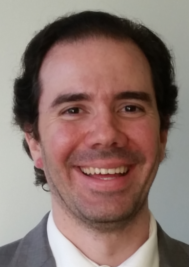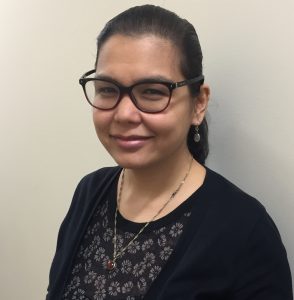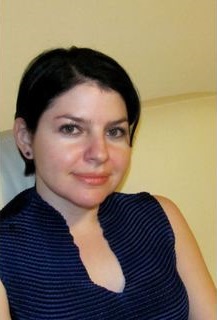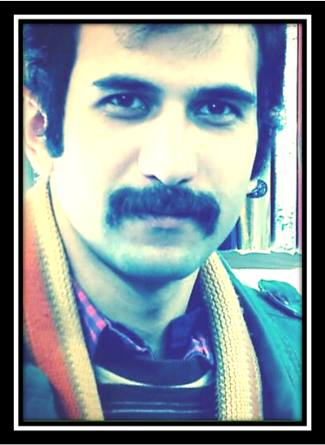
Open Innovation in the Public Sector
Leonardo Ferreira de Oliveira (NYU)
ldo235@nyu.edu
About the Speaker:
Leonardo Ferreira de Oliveira is a Visiting Researcher at the Governance Lab - Tandon School of Engineering - New York University, where he focuses on how Justice`s Open Data can create public value. He is a Ph.D. student in Administration at University of Brasília – UnB, Brazil, with a research focus on Innovation and Strategy in Justice Systems. He holds a BA and an MA in Administration from the same University and participated in research groups in Innovation in Organizations of Justice and Strategic Use of Open Data. He also works as a lecturer, since 2012, for graduate and postgraduate courses in Public Administration and Management field - in the main universities of Brazil`s Federal District.
Abstract:
Leonardo discussed that (1) the concept of Dynamic Capabilities - Sensing, Seizing and Transforming - is adherent to analyze public sector innovation, especially open innovation in government; (2) In this context, organizational capabilities (Innovation, Openness and Service Delivery) contribute to public value creation and can be analyzed through System Dynamics.

Using System Dynamics to analyze policies combating human trafficking
Khatera Alizada (Center for Mind and Culture)
khatera.alizada@gmail.com
About the Speaker:
Khatera Alizada post-doctoral fellow at the Center for Mind and Culture. She obtained a PhD in International Studies from Old Dominion University. Her research interest is using computational models to complex social problems.
Abstract:
The model applies the economic concept of supply and demand to the dynamic problem of human trafficking. The basic mechanism that affect the dynamic behavior states that an increase in the demand increases the price. An increase in the price increases profitability, which leads to an increase in the supply. An increase in supply negatively affects the price. The purpose of the model is to identify policies that will mitigate trafficking.

Validation of an Energy model
Mario Coelho (MIT)
mariodpc@mit.edu
About the Speaker:
Mário Coelho is a PhD student in Sustainable Energy Systems under the MIT Portugal Program in the University of Porto. Currently in a visiting period at MIT, his research aims to evaluate impacts of policies to foster renewable energy in the energy portfolio and on electricity markets in Brazil.
Abstract:
In this presentation it Mário introduced his recent work in which the he is trying to replicate electricity pricing in Brazil for the past 15 years. The country has a very large hydropower share in the global electricity generation, which ultimately means that there is a correlation between energy stored in the reservoirs and the electricity pricing. The main aim of the presentation is to receive insights and feedback regarding the regression and validation methods to be used in the research.

Analysis of the Sustainability of Transboundary Desalination
Ashley Page (New Mexico University)
apage@nmsu.edu
About the Speaker:
Ashley Page will be graduated this May with an M.S. in Water Science and Management from New Mexico State University. She holds a B.A. from Davidson College in Political Science. Her research focuses on comprehensively analyzing hydrologic and social systems to evaluate the viability of water policy solutions.
Abstract:
Ashley’s presentation covered a project investigating the sustainability of desalination in a transboundary study site along the United States-Mexico border from a hydrologic-social system lens. More broadly, the presentation discussed the applicability of this study’s model to regions and scenarios outside of the original case study site.

Exploring Collaboration
Yenisel Gulatee (UAlbany)
ygulatee@albany.edu
About the Speaker:
Currently a PhD student in the Information Science Program at the University at Albany focusing on organizational development, specifically in the areas of collaboration, group learning, and decision making. Previous graduate work completed at the University of Hawaii in Futures Studies, and undergraduate work in Anthropology and History at Florida Atlantic University.
Abstract:
The purpose of this model is to explore the relationship between the organizational structure and the individual through the lens of collaboration. The problem to be investigated will be: How the relationship between positive/negative individual behaviors and organizational expectations, policies, and needs affect organizational collaboration.

System Archetypes in Water Resource Management
Babak Bahaddin (UAlbany)
bbahaddin@albany.edu
About the Speaker:
My name is Babak Bahaddin. I got my bachelor degree from Civil Engineering department at Sharif University of Technology. During my undergraduate studies, I took some courses from the university's business school, especially courses about System Dynamics. Since then, I am working in this area mostly as a student, but sometimes as an instructor, as a consultant, or as a researcher. Currently, I am a third-year PhD student in the Informatics department of University at Albany, SUNY. My specialization is Data Analytics. Besides my coursework, I work for the System Dynamics Society as a graduate assistant. Currently, I am more involved with studies on best strategies in water resource management in macro- and micro level.Babak is a Ph.D. student in the Informatics Department at University at Albany, State University of New York, where he is developing numerical platforms for simulation-based exploration of behavioral economic dynamics. Babak has been working at the System Dynamics Society since 2015. Previously he obtained a bachelor degree in civil engineering from the Sharif University of Technology in Tehran. His work focuses mostly on applying quantitative models to the study of resource management and the sustainable use of natural resources.
Abstract:
Many water resources management (WRM) problems are similar in nature, and yet they continuously appear in different forms and in different geographical locations. Understanding a malfunctioning system structure is essential for developing sustainable solutions, which should be further examined using detailed quantitative models. Persistent WRM problems can be explained at the strategic level using a set of generic system structures, commonly known as system archetypes. These causal-descriptive conceptual models can be used as diagnostic tools to identify weak links and problematic feedback loops in management schemes, facilitating the dissemination of policy-relevant insights for addressing the weaknesses. This paper illustrates the use of generic structures in water resources systems for uncovering the root cause of some ubiquitous WRM problems and potential unintended consequences of short-sighted solutions. The utility of system archetypes is discussed in terms of gaining big-picture systemic insights, developing effective technological solutions and complementary management policies, and monitoring sustainable system trajectories.

A System Dynamics and scenarios framework for architecting product design goals for changeability
Marc-Andre Chavy-Macdonald (MIT)
marc@m.sys.t.u-tokyo.ac.jp
About the Speaker:
I am a final-year PhD candidate in Engineering at the University of Tokyo, currently Visiting Scholar with MIT’s SDM (System Design & Management) program. My research is in Design for Changeability, or how to model future societal changes and uncertainties, in order to design appropriate flexibility in a new product or system. My background is in space, with a dual master’s in space technology (SpaceMaster) and some time at the European Space Agency working on astronaut radiation protection strategies, and how they drive long-term mission architecture. My Bachelor’s was in Physics & Math at Dalhousie University in Halifax, Canada, where I was born.
Abstract:
The design of changeable product architecture requires modeling the dynamic interaction between products and the sociotechnical sphere, in order to understand where changeability is needed. For example, government approval of airport expansions will impact airline operations, and the design priorities of new airliners. The purpose of this paper is to develop an approach to determining design goals, for a new product architecture in a System-of-Systems (SoS). These goals become dynamic, once linked to their underlying societal changes. The characteristic of the approach is to integrate System Dynamics (SD) and scenario planning; thus SD captures quantitative aspects of societal and product function dynamics, while scenarios provide a narrative explicating parameter choices, assumptions and implications. In this paper, SD models include business and societal aspects to evaluate long-term profitability. Goal prioritization for a new product is obtained in the form of importance weights via global sensitivity analysis; these weights are highly dependent on external functions and risk attitude, and vary in time. A toy case study deals with modeling the household freezer’s past evolution in a SoS to find evolving design priorities. The result is a positive evaluation of the method, using a recent Design for Changeability framework.

Towards resolving the Sageman-Hoffman Debate on Radicalization
Timothy Clancy (WPI)
tbclancy@wpi.edu
About the Speaker:
Timothy is a PhD Candidate in System Dynamics at WPI. His focus area is on the reduction of violence and instability. He has presented previously on topics ranging from insurgencies, mass-shootings and he's recently been published twice in a special edition of Systems. His work today is based on his PhD qualifiers which looks at an ongoing debate in counter-terrorism regarding the mechanisms of individual radicalization.
Abstract:
This work seeks to resolve a debate between counter-terrorism experts Marc Sageman and Bruce Hoffman on the methods of radicalization of terrorists. The debate resolves around whether radicalization is a “bottom-up” (swarm) process largely driven by individual factors and loose networks connected by the internet or a “top-down” (fisherman) process that relies on foreign terrorist organizations (FTO). This research was originally conducted as Timothy's PhD qualifiers.